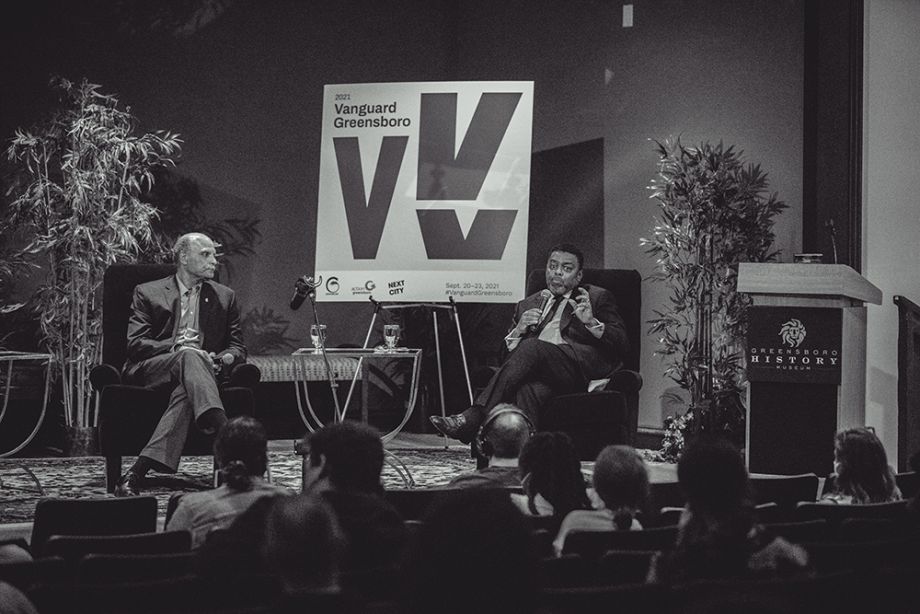Tracing the origins of a city such as Greensboro, North Carolina, uncovers the character of the place it is today.
“Events affect the trajectory of a society or a community,” said Rodney Dawson, a curator at the Greensboro History Museum. He cites the massacre in nearby Wilmington in 1898, for example, as setting the trajectory for the future of both cities. Thousands of white supremacists attacked and murdered African-Americans; those that survived fled Wilmington for new beginnings, including in Greensboro.
Next City was in Greensboro in September for our Vanguard Conference. We traversed the city, met with community leaders and thinkers, and we listened for solutions that could only happen there. Stay tuned for the release of our “Solutions from Greensboro” ebook, which compiles the stories that we found.
History made Greensboro a crossroads. It even has a nickname — the Gate City — derived from the railroad that, in the late 1800s, made Greensboro the gateway to the West and the South. It aspires to another nickname — the Civil Rights City — honoring it as the birthplace of the sit-in movement. In 1960, four young Black men walked from North Carolina A&T State University to Woolworth’s and sat at a whites-only lunch counter, asking to be served. Many more protests would follow, in Greensboro and nationwide.
Next City convened a panel of experts on the history of Greensboro, and they highlighted the intersection of four groups — African-Americans brought there by enslavers, the Scotch-Irish who enslaved them, Jews, and Quakers. The people who found a sense of belonging in Greensboro often couldn’t find that feeling anywhere else.
“You had a group of people who settled in this region who had really been persecuted back in the old country and in other parts of the colonies, and they came here to this region for a new life. And so you had a lot of mixture,” said Arwin Smallwood, chair of the history department at NC A&T. That mix created a city unlike most others.
In this special two-part series of our podcast, we talk with the historians, and with the chancellors of two Greensboro universities — UNC-Greensboro and NC A&T — about how the city realizes its full potential.
Listen to these episodes below, or subscribe to Next City’s podcast on Apple and Spotify.









